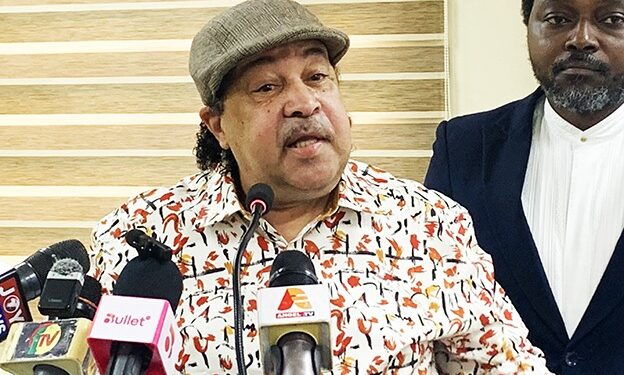US Ghost Foundation’s $217 Bn Fund Claim Raises Red Flags
Front Desk Report
A New Republic investigation has uncovered troubling inconsistencies in a high-profile development financing claim involving U.S. national Michael Bass and his associate Debra Pope.
The duo allege they secured a staggering $217 billion fund for infrastructure and social projects in Ghana an amount that, if true, would dwarf the country’s annual GDP. But mounting evidence suggests the entire scheme may be a sophisticated financial mirage.
Bass, who claims to represent the U.S.-based Primary Group Global Foundation, told The New Republic in an exclusive interview that he had received approval from an unnamed Italian lending institution to channel the funds into Ghana. He further alleged that the initiative had backing from former senior Ghanaian officials, including some currently under investigation for corruption.
However, the deeper the paper trail was examined, the more it unraveled. Bass’s narrative was riddled with contradictions, vague timelines, and unverifiable endorsements. No credible documentation was provided to substantiate the existence of the fund, nor was there any evidence of formal engagement with Ghana’s Ministry of Finance or other statutory bodies.
A Phantom Fund and a Questionable Foundation
The so-called Primary Group Global Foundation, which Bass claims is spearheading the initiative, appears to be a loosely registered U.S. entity with no discernible footprint in Ghana. Its website and public records offer little clarity on its governance, funding sources, or operational history. Analysts say the foundation’s lack of transparency raises serious questions about its legitimacy and capacity to manage such a colossal financial undertaking.
The use of Ghana’s name and the invocation of development rhetoric appear to be part of a broader pattern of schemes that exploit the allure of large-scale investment to attract attention and potentially, unsuspecting investors.
Political Shadows and Legal Grey Zones
Bass’s claim that former Ghanaian officials some of whom are currently facing corruption probes endorsed the project adds a political undertone to the saga. While no formal charges have been brought against Bass or Pope, the implications of their assertions could have reputational consequences for Ghana if left unchallenged.
The New Republic’s findings suggest that the purported $217 billion fund may be less about development and more about deception. The case underscores the need for tighter regulatory oversight of foreign entities claiming to broker mega-deals in the name of national development.
As the story unfolds, Ghanaian authorities may be compelled to investigate the claims more thoroughly to protect the country’s financial integrity and international standing.


